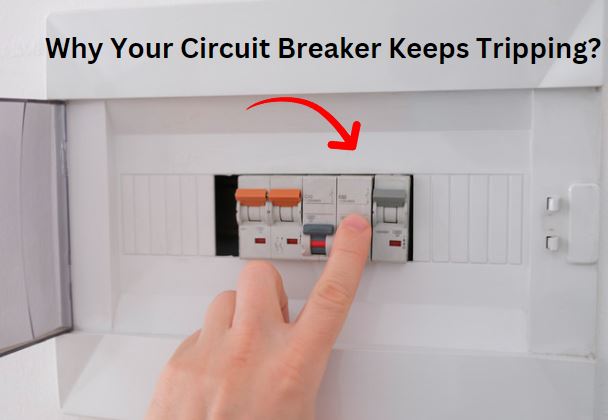Why Your Circuit Breaker Keeps Tripping?
Introduction:
As an electrical support engineer, one of the most common issues you’ll encounter in residential and commercial settings is circuit breaker tripping. It’s a recurring frustration for many homeowners and business owners alike. Understanding why your circuit breaker keeps tripping is essential for maintaining electrical safety and preventing potential hazards. Let’s delve into the intricacies of this phenomenon.
Understanding the Circuit Breaker:
Before delving into the reasons behind frequent tripping, it’s crucial to comprehend the role of a circuit breaker. Essentially, a circuit breaker acts as a safety device designed to protect electrical circuits from damage caused by overload, short circuit, or ground fault. When it detects an abnormal electrical condition, it interrupts the flow of electricity to prevent overheating and potential fires.
Common Causes of Tripping:

- Overloaded Circuits: One of the primary reasons for circuit breaker tripping is overloading. Overloading occurs when the electrical load exceeds the capacity of the circuit. This can happen when too many appliances are plugged into a single outlet or circuit, drawing more current than the wiring can handle.
- Short Circuits: Short circuits occur when a hot wire comes into contact with a neutral wire or a ground wire. This creates a low-resistance path, causing a surge in current flow. Circuit breakers are quick to react to short circuits by tripping to prevent overheating and potential fires.
- Ground Faults: Ground faults happen when a hot wire comes into contact with a ground wire or a grounded part of an electrical system. Similar to short circuits, ground faults result in an abnormal current flow, prompting the circuit breaker to trip as a safety measure.
- Faulty Appliances or Wiring: Sometimes, the culprit behind frequent tripping lies within the electrical appliances themselves or the wiring within the building. Faulty appliances or damaged wiring can cause irregularities in the electrical system, leading to repeated tripping of the circuit breaker.
Troubleshooting and Solutions:
- Load Management: To prevent overloading, distribute electrical loads evenly across different circuits. Avoid plugging multiple high-power appliances into the same outlet or circuit.
- Inspections and Maintenance: Regular inspections of electrical appliances and wiring can help identify potential issues before they escalate. Replace damaged cords, sockets, or appliances promptly to mitigate the risk of circuit breaker tripping.
- Professional Assistance: In cases where the cause of tripping remains elusive or when dealing with complex electrical systems, it’s advisable to seek assistance from a qualified electrician. They can conduct thorough inspections, troubleshoot the problem, and implement appropriate solutions.
FAQs:
How do you fix a breaker that keeps tripping?
- Identify the cause of tripping (overload, short circuit, ground fault).
- Disconnect appliances from the circuit.
- Reset the breaker and gradually reconnect appliances.
- Replace the breaker if it continues to trip.
How do I stop my main circuit breaker from tripping?
- Reduce electrical load by unplugging unnecessary devices.
- Distribute appliances across different circuits.
- Upgrade the electrical system if overloading is a recurring issue.
What is the main cause of breaker tripping?
Overloading, short circuits, and ground faults are common causes of breaker tripping.
Which two are the most common reasons for a tripped circuit breaker?
Overloading and short circuits are the most common reasons for circuit breaker tripping.
Is it safe if breaker keeps tripping?
Circuit breakers trip to prevent electrical hazards, so it’s generally safe. However, frequent tripping indicates an underlying issue that needs addressing.
How many times can a MCB trip?
Modern miniature circuit breakers (MCBs) are designed for frequent tripping, typically thousands of times, before needing replacement.
How many times can a breaker trip before going bad?
Breakers can trip numerous times before failing, but frequent tripping may indicate a problem with the breaker or the electrical system.
How many times can you reset a tripped circuit breaker?
You can reset a tripped circuit breaker as many times as needed. However, if it continues to trip, it requires investigation and potential replacement.
How do you fix a power trip?
- Identify the cause of the power trip (overload, short circuit).
- Disconnect appliances, reset the breaker, and gradually reconnect appliances to isolate the issue.
- Seek professional assistance if the problem persists.
Conclusion:
As an electrical support engineer, understanding why circuit breakers trip is fundamental to ensuring electrical safety within residential and commercial settings. By recognizing common causes such as overloading, short circuits, ground faults, and faulty equipment, proactive measures can be taken to mitigate risks and prevent potential hazards. Through load management, regular maintenance, and professional assistance when needed, the reliability and safety of electrical systems can be upheld, providing peace of mind to homeowners and business owners alike.
 Electrical Engineering World Wiring a Brighter Tomorrow!
Electrical Engineering World Wiring a Brighter Tomorrow!